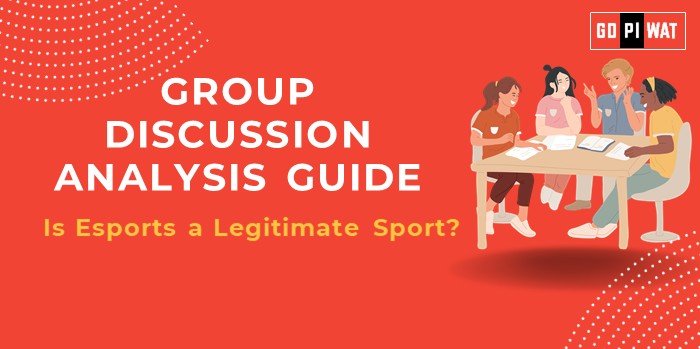📋 Group Discussion (GD) Analysis Guide: Is Esports a Legitimate Sport?
🌐 Introduction to Esports
Opening Context: Esports, or competitive video gaming, has evolved from niche communities to billion-dollar global industries. With millions of viewers and professional players, the debate over its legitimacy as a sport is gaining momentum.
Topic Background: Esports emerged in the 1980s with games like Space Invaders. Today, titles such as League of Legends and DOTA 2 are staples in international tournaments. The International Olympic Committee recently recognized virtual sports as a growing field, sparking debates about its place alongside traditional sports.
📊 Quick Facts and Key Statistics
- 💰 Global Revenue: $1.8 billion in 2023, projected to exceed $3 billion by 2025 (Statista, 2023).
- 👥 Audience Size: 532 million viewers worldwide, surpassing some traditional sports like baseball.
- 🏆 Prize Pools: DOTA 2’s The International 2023 offered $40 million, rivaling the PGA Tour.
- 🌍 Recognition: Over 30 countries, including the US and South Korea, officially recognize esports as a sport.
🌍 Stakeholders and Their Roles
- 🎮 Players and Teams: Central to the industry, showcasing exceptional skill and teamwork.
- 🏢 Event Organizers: Companies like ESL and Riot Games set global tournament standards.
- 🏛️ Governments: Regulate, provide recognition, and fund esports (e.g., South Korea’s Ministry of Culture, Sports, and Tourism).
- 📺 Media and Sponsors: Drive visibility and commercial viability.
🏆 Achievements and Challenges
✨ Achievements
- 📈 Massive Growth: Esports viewership has overtaken traditional sports in some regions.
- 🏅 Recognition: Asian Games 2022 included esports as a medal event.
- 💼 Career Opportunities: Expanded into coaching, analytics, and content creation.
⚠️ Challenges
- ❓ Legitimacy Debate: Skeptics argue that esports lacks physical rigor.
- 🩺 Health Concerns: Sedentary lifestyle risks and mental health issues.
- 🚧 Inclusion and Access: Socioeconomic barriers in underprivileged regions.
🌍 Global Comparisons
- 🇰🇷 South Korea: Leads in infrastructure and training programs for esports.
- 🇺🇸 USA: Greater commercial investment but less governmental recognition.
💬 Structured Arguments for Discussion
- ✅ Supporting Stance: “Esports requires skill, strategy, and dedication—attributes of any traditional sport.”
- ❌ Opposing Stance: “Without physical exertion comparable to sports like soccer or basketball, esports cannot qualify as a sport.”
- ⚖️ Balanced Perspective: “Esports shares many attributes with traditional sports but diverges on physicality, making it a unique subset.”
🎯 Effective Discussion Approaches
- 💡 Opening Approaches:
- 📊 Highlight audience statistics or prize pools.
- 🌟 Use South Korea’s or the Olympic Committee’s recognition as a starting point.
- 💡 Counter-Argument Handling:
- ⚡ “While physical exertion differs, esports requires high mental acuity and reflexes, akin to chess or archery.”
- 🩺 “Health concerns exist in all sports, from concussions in football to burnout in tennis.”
🔍 Strategic Analysis of Strengths and Weaknesses
- 💪 Strengths: High revenue, global recognition, inclusive for differently-abled players.
- 📉 Weaknesses: Legitimacy concerns, health risks, lack of universal governance.
- 📈 Opportunities: Integration in global sports frameworks, grassroots growth in developing nations.
- ⚠️ Threats: Ethical issues like match-fixing and doping in gaming.
🎓 Connecting with B-School Applications
- 📌 Real-World Applications:
- 🎮 Explore esports economics in marketing or operations.
- 🤝 Study team dynamics in esports for HR and leadership roles.
- 💡 Sample Interview Questions:
- 🤔 “How can esports be leveraged in traditional sports management?”
- 🤔 “What challenges do esports organizations face in monetization?”
- 📚 Insights for Students:
- 🌟 “Esports provides a case study in digital-native industry growth.”
- 🌍 “Its global expansion offers insights into international business models.”


